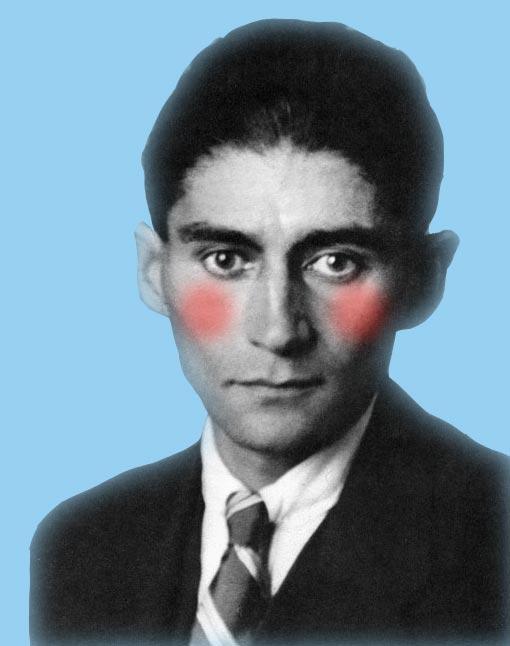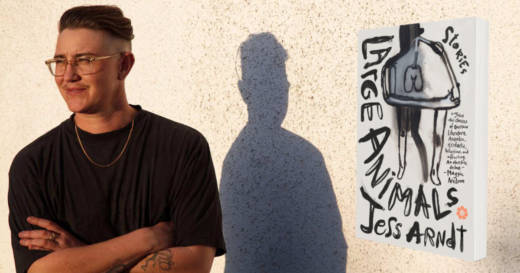For the first time in my life I paid extra to have legroom in an airplane. I was getting over a cold, but also I wanted to stretch out and fully enjoy Large Animals by Jess Arndt. You see, Jess Arndt is like a queer Kafka who perambulates the surreal container of the body by dealing almost wholly in non-sequiturs.
Many a great story in Large Animals, Arndt’s debut collection, has a strong resemblance to Kafka’s shorter fiction — which, unlike his longer work that deals with bureaucracy, are rather works of gorgeously, painfully strange portraiture in which one is irredeemably ill-made for the world. Arndt is fond of creating a constellation of small desires for her characters that are hilariously specific, and as with Kafka’s shorter work, her stories turn on the heel of making one seemingly insignificant obsession lie in wait and then ambush the biggest questions of selfhood.
However.
There is no question Jess Arndt would have made Kafka blush.
To wit: in Third Arm, an English Professor drives around touching herself while avoiding her love life and pretending to be largely endowed. “I only liked jerking off while driving — otherwise the sincerity of the act completely killed me,” she quips. This unnamed character sees healers at the Authentic Process Healing Institute, and also, she carries a bit of unspecified gore in alcohol in a jar.

Arndt’s stories are built like this—in as many compelling directions as possible. But invariably, one direction rises above the others. The bit of gore — described as apricot-sized, mostly made of fat, and with darker globs — finally turns allegorical. As you are busy ticking off options for what the jar could possibly contain (an amygdala? definitely an organ?), Arndt continues breathlessly: “It made me think of a bar I’d been to near Joshua Tree.” It is here where you get an answer of a different kind as the unnamed character recounts what she told the bartender: “Scientists have proven that matter doesn’t exist. You see a foot but when you get past all that skin bone squishy stuff et cetera, nothing’s really there,” which is a subterfuge lobbed at the mysterious jar, but also to the feeling of being mismatched with your body which artfully haunts this entire collection.


